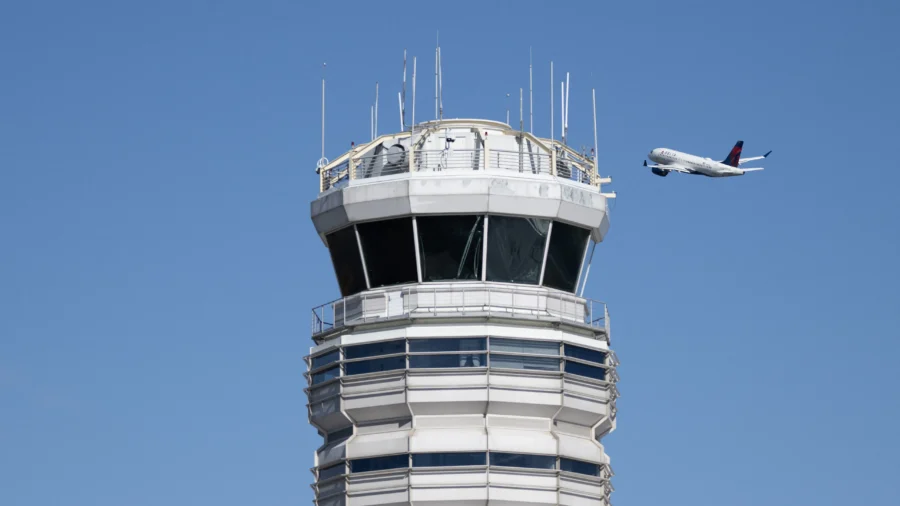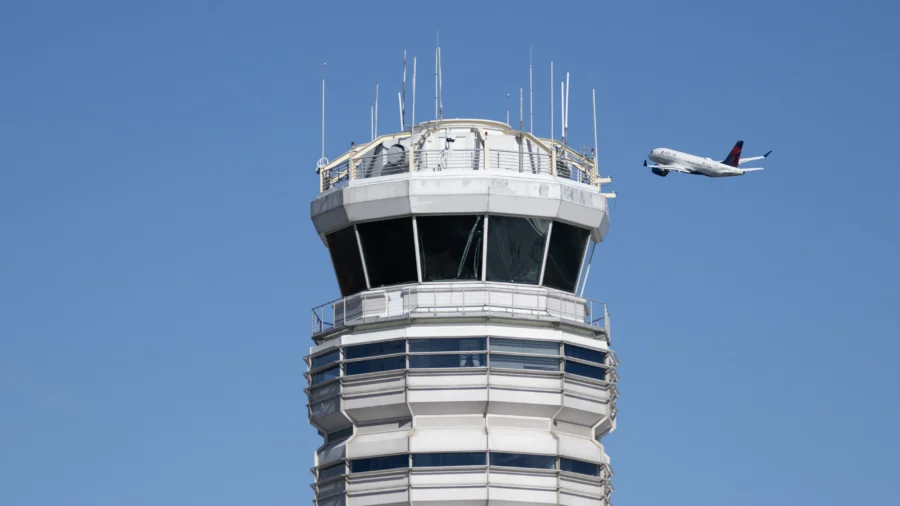
Staffing levels for air traffic controllers at the Federal Aviation Administration (FAA) improved on Nov. 11, one day ahead of a key House vote to end the longest government shutdown in U.S. history, according to Transportation Secretary Sean Duffy.
Duffy hosted a press conference at Chicago’s O’Hare International Airport on Tuesday, where he warned that keeping the government shutdown would lead to a “significant disruption” by the weekend.
He said Americans would see a large increase in flight delays and cancellations if the House fails to pass the Senate-approved continuing resolution when it meets to vote on Wednesday, with the potential to force some airlines to ground planes.
“To quantify it, I don’t have a crystal ball for you, but I can tell you what we’re seeing with all of our equities. There will be real disruption,” Duffy said. “I think it’s gonna be more than 10 percent, and I think we might find airlines that have to make decisions. Do they keep flying? If this doesn’t open, you might have airlines that say we’re gonna ground our planes. We’re not gonna fly anymore. That’s how serious this is.”
The FAA said the cuts were necessary to ensure air travel safety as unpaid and overworked air traffic controllers began to show signs of fatigue during the government shutdown. The air traffic controller shortage, which dates back to the early 1980s and was worsened by early retirements during the COVID-19 pandemic, exacerbated the FAA’s staffing level shortage during the government shutdown, leading to multiple “staffing triggers” over recent weeks.
During a press conference earlier on Tuesday at Wausau Downtown Airport in Wisconsin, Duffy said the previous weekend recorded severe staffing triggers.
“This past weekend, Friday, Saturday, and Sunday, witnessed three of the highest staffing trigger numbers out of the four that we’ve had on record during the shutdown,” he said. “Normally, what we will do is we’ll put in ground delay programs that you’ll see your flights being delayed. That’s a normal protocol. This past weekend saw us put in airspace flow programs where we had to slow the entire country down, which forced massive cancellations and delays.”
Luckily, those staffing shortages improved by Tuesday, Duffy said in Chicago.
“Today’s a good sign. We had four staffing triggers today. On Saturday, there were 81. I think Sunday was 53, so real issues in the last three days. But today looks better, and the House does their work tomorrow. I think we’re well on our way to get into more normal air travel, less delays and less cancellations,” he said.
The House is expected to vote Wednesday afternoon on the Senate-approved continuing resolution to reopen the government. Duffy said on Tuesday that air traffic controllers would be paid within 24–48 hours of the government reopening.
“They’ll get 70 percent of their back pay in that timeframe, and then after, the remainder will be made up. I think it’s about a week, they’ll get the remainder of the pay,” he said.


